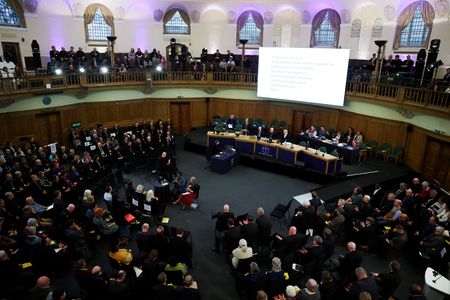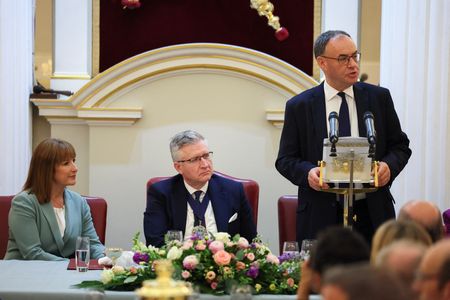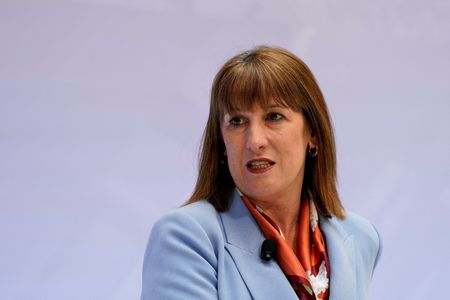By Muvija M
LONDON (Reuters) -The Church of England’s governing body voted on Tuesday to do away with requiring those who want to become clergy to agree to a 1991 document on sexuality, saying some of the assumptions in the paper now appeared prejudicial and offensive.
The document, titled “Issues in Human Sexuality,” described “homosexual practice as especially dishonourable” and called on homosexual Christians to lead a life of abstinence.
The mother church of 85 million Anglicans worldwide said the decision, which marks another step towards making the Anglican faith more inclusive for the LGBTQ+ community, was independent of the ongoing “Living in Love and Faith” process that is exploring sexuality and marriage.
The CoE’s decision to allow blessings for same-sex couples in 2023 deepened divisions both at home, where it is the established church, and in Anglican strongholds in Africa and Asia, where homosexuality remains illegal in some countries.
The motion to change the vocations process was passed overwhelmingly at a meeting of the General Synod, made up of bishops, clergy and laity, the CoE said. It added that the move does not alter the Church’s doctrine.
The paper was originally intended as a teaching document, but had assumed a more definitive role to set out expected conduct within the Church’s discernment and vocations process.
The 48-page document states that “homophile orientation and its expression in sexual activity do not constitute a parallel and alternative form of human sexuality as complete within the terms of the created order as the heterosexual.”
“A paper introducing the item to Synod members noted that the tone, language, and some of the assumptions in ‘Issues’ are now contextually inappropriate, and appear prejudicial and offensive to many people,” the CoE statement said.
Charles Bączyk-Bell, an openly gay Anglican priest from London, said the document was dated even at the time of publication, and that it had been used to screen people out of the ordination pathway.
“Now it has gone … it opens the way for liberalisation of the church’s policy on same sex relationships and means we can stop using it as a kind of reference text,” he told Reuters.
(Reporting by Muvija M; Editing by Aidan Lewis)









